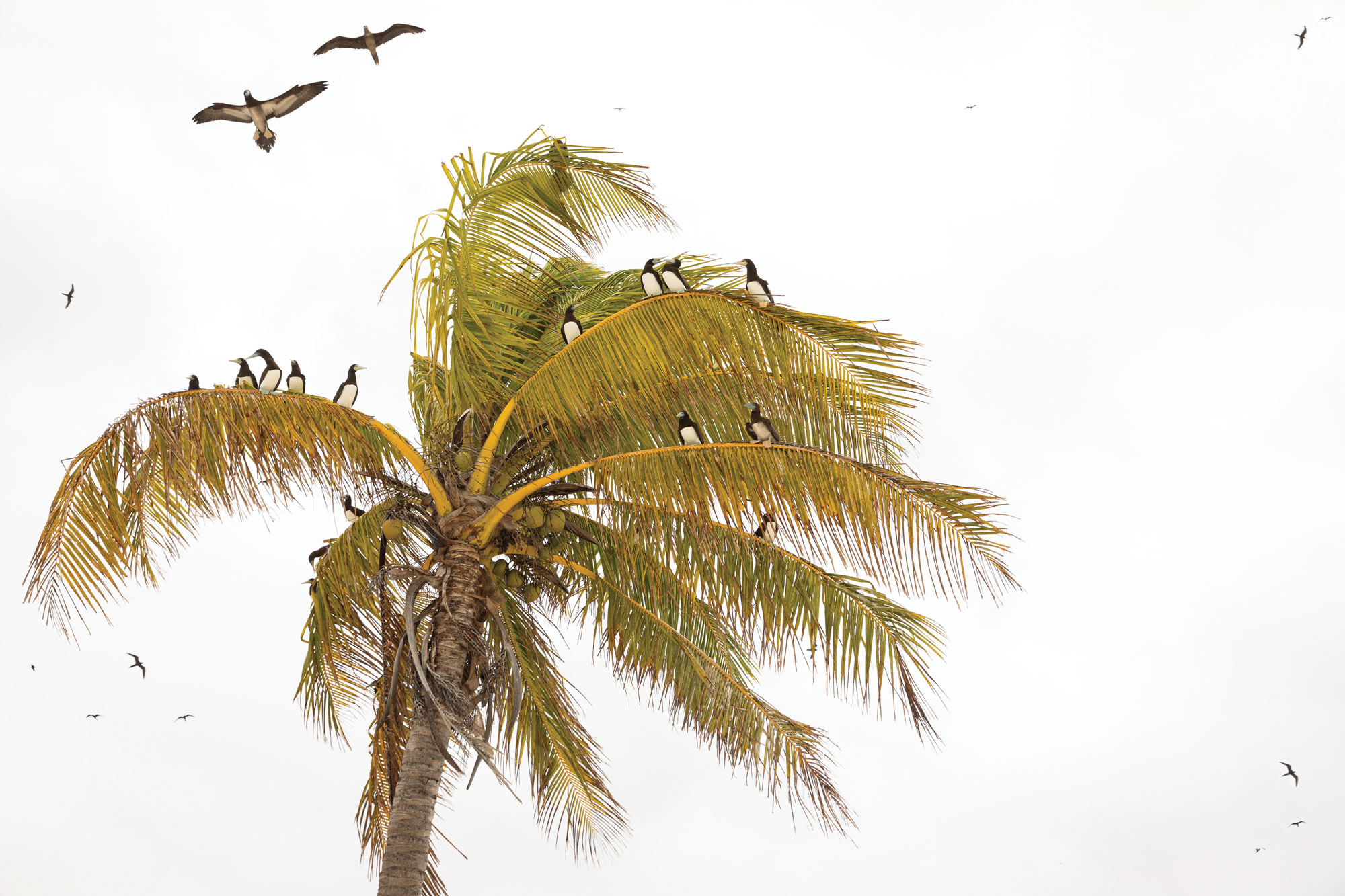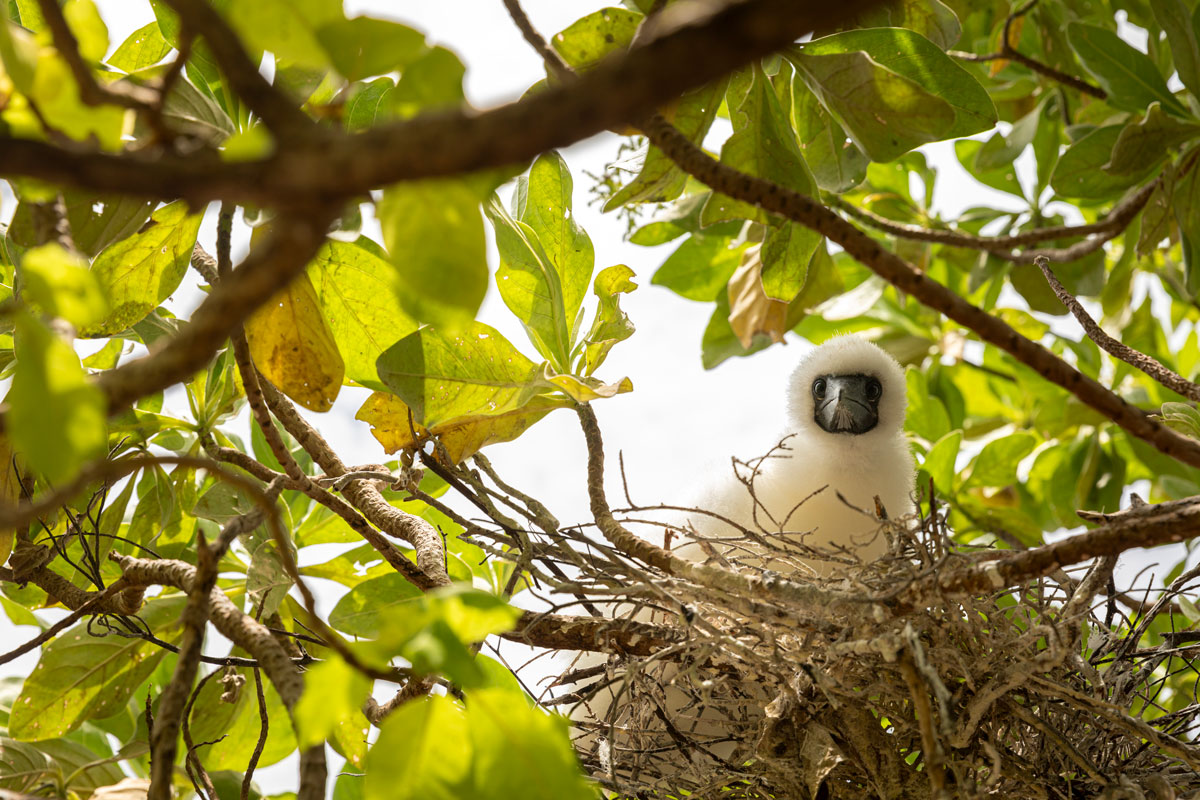

Eve Hallock has studied acorn woodpeckers in California, masked bobwhites in Arizona, marbled murrelets in Oregon and Galápagos finches in Ecuador. But this field biologist’s favorites are seabirds.
Now a master’s student in the School of Environmental and Forest Sciences, Hallock has previously spent months working independently on Tetiaroa, a French Polynesian atoll in the South Pacific, studying seabirds and their habitat. But on this trip, in October 2023, she’s here at the Tetiaroa Society’s Ecostation with a group of UW researchers including her advisers, Associate Professors Beth Gardner and Sarah Converse, and doctoral student Amelia DuVall.
Together they spend time GPS-tagging Sula leucogaster—the seabirds commonly known as brown boobies—to learn more about where the birds travel. They’re also studying the relationship between these birds, which nest on the ground, and rats, which are invasive and currently being eradicated from the atoll.

Since 2013, generous donors have funded many UW research projects on Tetiaroa—studying shark behavior, ocean acidification, the effects of microplastics on corals, and more. The researchers collaborate with the Tetiaroa Society, which invests in preserving the culture and biodiversity of this ring of 12 motus, or coral islets. It’s an ideal research location for many reasons.
“Tetiaroa is a remote atoll with a relatively closed system. Studying ecological systems there can help us better understand other low-lying islands,” says Gardner. She directs the UW’s Quantitative Ecology Lab, which develops innovative methods to study wildlife, plant and fishery populations. Much of their work focuses on our ability to manage and conserve wildlife populations.
That especially matters to Hallock, who’s adding to her deep background of field research with graduate training in data science at the UW. The seabirds she’s studying on Tetiaroa are part of an intricate ecosystem whose future in a changing world is far from certain—and Hallock’s work could help prepare us for that future.
“Seabirds are all vulnerable to climate change, fisheries management and invasive species,” she says. “It’s so important that people want to support research like this.”